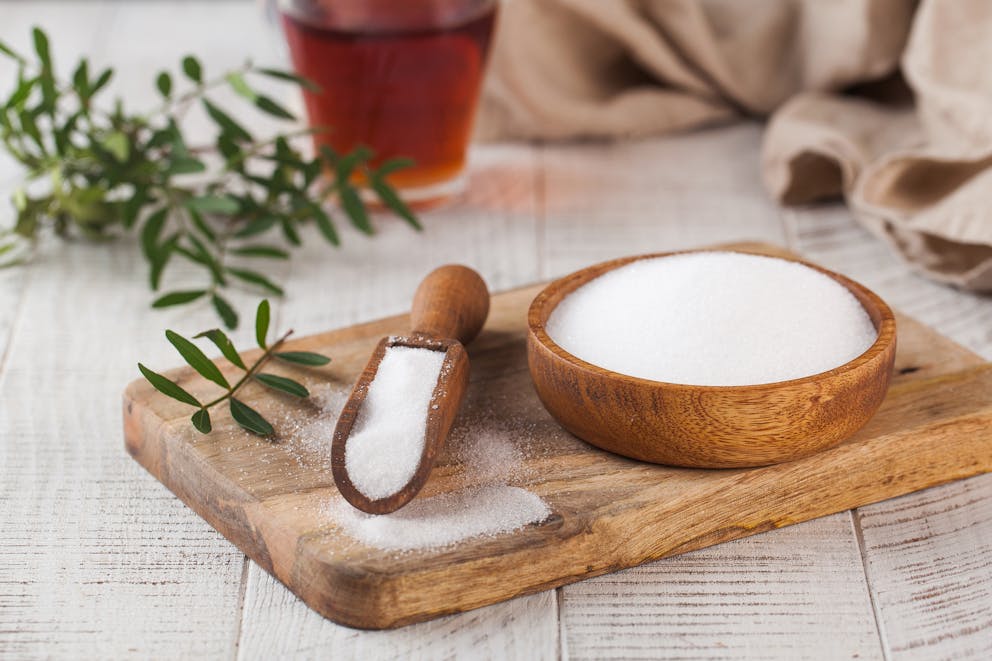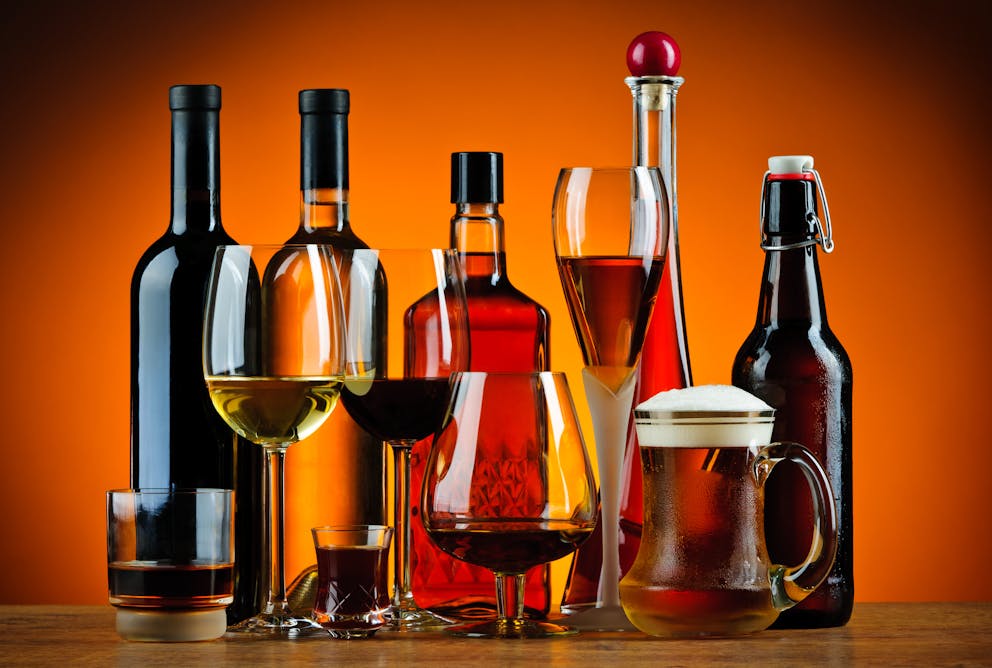Ketosis is More Than Just Lowering Your Carbs
Imagine walking into a candy store, but instead of picking based on taste, you choose candies by how they affect your insulin levels. Sounds strange? Well, that's what we do daily with our food choices.
In this session, we're plunging into the intricate universe of sweeteners and their significant effects on our body's insulin reactions. We'll explore why fructose is heavy for your liver and why not all sugar alcohols play nice with your blood sugar.
Plus, find out how fiber plays a hero in this story, buffering against spikes in insulin when paired with other foods. But there's more – from the surprising twist between proteins and sugars to understanding alcohol’s dance with insulin.
As we journey through this narrative, you'll gain a deeper understanding of how to skillfully combine macronutrients and traverse the landscape of sugars for enhanced health benefits.
The Impact of Different Sugars on Insulin Response
Understanding how different sugars affect insulin response is crucial for managing blood sugar levels effectively. While all sugars can elevate insulin levels to some degree, some, like glucose, tend to have a more pronounced effect due to their rapid absorption.
Fructose, on the other hand, may not raise insulin as significantly but can contribute to insulin resistance and other metabolic issues over time.
Fructose: A Liver's Burden
When we talk about fructose, often found in high fructose corn syrup and agave nectar, it’s like a party where only the liver is invited—and it’s not having fun.
Unlike other sugars processed by various organs, fructose heads straight to your liver, producing excessive fat and potentially fatty liver disease.
This singular processing route means that while you might not see immediate spikes in blood sugar levels as with glucose, the long-term effects on your body's insulin sensitivity can be detrimental.
This cascade disrupts the usual flow of our body's metabolic functions, veering off the expected path.

Sugar Alcohols: A Mixed Bag
Sugar alcohols such as xylitol and erythritol offer a sweet taste without the same blood sugar spike associated with traditional sugars. But here’s the twist—different sugar alcohols have varying impacts on blood sugars and insulin response.
While some may cause minimal changes, others can trigger digestive issues or slightly elevate blood sugar levels.
The Role of Fiber in Insulin Response
Unlike other nutrients, fiber uniquely maintains insulin levels stable by crucially regulating the body's reaction to various carbs. Consuming fiber-rich foods slows down digestion and absorption of sugars, helping prevent sudden spikes in insulin after meals.
Combining Macronutrients for Better or Worse
Combining macronutrients strategically can optimize nutrient absorption and promote satiety. Pairing carbohydrates with proteins and fats can help stabilize blood sugar levels and provide sustained energy throughout the day.
However, consuming high-fat foods with refined carbohydrates may lead to rapid spikes in blood sugar and promote overeating.
The Protein-Sugar Connection
Imagine you're at a buffet, and instead of choosing between savory or sweet, you load up on both. This mix might taste tremendous, but it sends your insulin levels on a roller coaster ride.
When sugar teams up with protein or fat, the duo can spike your insulin response by a whopping 200%. Why does this matter? Maintaining stable insulin levels is vital to sustaining energy and preventing chronic conditions such as diabetes.
This isn't merely about the here and now; it's a deeper dive into our body's long-term handling of our dietary choices. Adding protein to sugary treats may seem like an attempt to balance things out, but in reality, it's making the pancreas work overtime.
Moderation becomes critical here. It’s not about cutting these foods out entirely but knowing how combining them affects your body.
When figuring out what to eat or aiming to keep your blood sugar stable, understanding this connection can guide you in making smarter decisions without completely giving up on sweets.

Alcohol's Varied Effects on Insulin
When it comes to alcohol and insulin response, not all drinks are created equal. Beer, for instance, might surprise you by having a higher insulin spike compared to red wine. This could be due to its carbohydrate content, which acts quickly in the bloodstream.
Conversely, white wine and gin tread more lightly on your insulin levels. This is because of their lower carb content and how our bodies metabolize these beverages differently. Gin, being distilled, has virtually no carbs, which may explain its minimal impact on insulin.
To understand why beer acts like a sugar bomb while gin seems almost neutral can be fascinating. Check out this article. Exploring this piece, you'll uncover the intricate ways various alcohols impact our blood sugar and consequently alter the insulin reaction within us.
Remember, though, moderation is key as excessive drinking can lead to other health issues regardless of the type of alcohol consumed.
The Minimal Insulin Impact of Fats
Not all foods have the same effect when managing blood sugar and insulin levels. Considering fats' role in this balance is intriguing, acting differently from other nutrients. Interestingly, the more pure a fat is, the less it spikes your insulin levels.
Fats are unique because they don't directly raise your blood sugar like carbs do. This means you're keeping your insulin response low when indulging in purely fatty foods—think avocado or olive oil.
For those navigating the tricky waters of blood sugar management or embracing low-insulin-spiking diets like keto, this insight is revolutionary.
This principle highlights why choosing high-quality fats matters. Pure forms of fat lead to minimal changes in insulin levels compared with processed options that might contain hidden sugars or additives;
For those navigating diabetes management or simply aiming for better metabolic health, understanding which fats to choose can make all the difference.
Protein's Complex Relationship with Insulin
Eating moderate amounts of protein won't significantly impact your insulin levels. However, increasing the volume can lead to a spike. It's akin to adjusting the music volume at a party; a little is acceptable, but excessive noise can create issues.
Then there's whey protein, which elevates the situation further. If proteins were guests at our party, whey would be the one who brings uninvited extra friends.
Research indicates that whey can notably raise insulin levels and potentially push you towards insulin resistance if not appropriately managed.
So, keep it balanced. Enjoy your protein and whey in moderation to ensure you give your body what it needs without overdoing it. This way, everything runs smoothly, and the "party" inside keeps going strong.
Understanding Insulin Response Variations and Low-Carb Pita Bread
Understanding how different sugars affect insulin response is crucial for maintaining stable blood sugar levels. Some sugars, like fructose, can lead to a slower insulin response than glucose.
This can benefit those managing their carbohydrate intake, especially when incorporating low-carb options like Low Carb Pita Bread into their diet.
Individuals can better control their blood sugar levels and support their overall health goals by choosing sugars that elicit a more moderate insulin response.
Conclusion
So, you've dived into the effects of different sugars on insulin response. You now know fructose hits your liver hard, and not every sugar alcohol is your friend.
And let's not forget how fiber stands as a guardian against those insulin spikes.
Are you pairing proteins with sugars? It’s about balance to avoid sending your insulin levels through the roof. And who could have guessed that fats are pretty much neutral in this game?
Different drinks dance differently with insulin - beer steps heavily while gin glides lightly.
To sum it up, mix wisely, choose thoughtfully, and remember moderation is key. Heeding these nuggets of wisdom will surely earn you your body's gratitude.
If getting a grip on the effects of different sugars on insulin response was our goal, consider this mission accomplished. Cheers to empowering ourselves with knowledge for enhanced well-being!
Previous blog
Will Fiber Knock Me Out of KetosisNext blog
Fennel Seed: Benefits and Uses
Popular
08/21/2024
55K views
02/23/2025
46.3K views
11/18/2024
277.5K views
03/18/2024
11/21/2022




